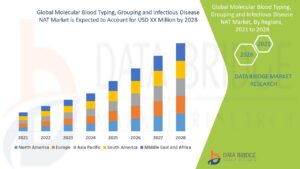Why the Best ESG Reporting Software Is Essential for Your Strategy
In today’s rapidly evolving business landscape, the integration of environmental, social, and governance (ESG) principles is no longer a mere trend—it’s a strategic necessity. As businesses worldwide are held accountable for their environmental impact, social responsibility, and governance structures, the need for robust ESG reporting becomes increasingly critical. As a result, choosing the best ESG reporting software is essential for companies aiming to stay ahead of regulatory changes, enhance their brand image, and meet investor demands for sustainability.
The Growing Importance of ESG
In recent years, stakeholders, ranging from investors and consumers to regulatory bodies, have shown a heightened interest in how companies manage their ESG obligations. ESG factors are now central to decision-making processes, with many investors viewing sustainable practices as a sign of long-term viability and reduced risk. Regulatory requirements around the world are also becoming stricter, compelling companies to be more transparent about their ESG strategies.
Furthermore, consumers are increasingly making purchasing decisions based on a company’s sustainability practices. As more brands adopt eco-friendly operations, it has become apparent that companies can no longer afford to ignore their ESG impact without risking financial and reputational consequences.
For organizations seeking to navigate this evolving landscape, ESG reporting software plays a critical role. The best ESG reporting software can help streamline and improve the transparency of a company’s ESG initiatives, ensuring they meet the ever-expanding requirements of both regulators and stakeholders.
Benefits of Using the Best ESG Reporting Software
1. Streamlining Data Collection
One of the most significant challenges in ESG reporting is the complexity and volume of data that needs to be collected, analyzed, and reported. ESG metrics span various categories, such as carbon emissions, supply chain transparency, employee welfare, and board diversity. Gathering this data manually or through disparate systems can be time-consuming and prone to error.
The best ESG reporting software provides a centralized platform that automates the collection of data from various departments, ensuring consistency and reducing human error. By integrating seamlessly with existing business systems, such as ERP and CRM platforms, these tools can automatically pull data from financial reports, environmental monitoring systems, and employee databases, consolidating everything into a single dashboard for easy access and analysis.
2. Enhancing Accuracy and Compliance
Accurate ESG reporting is essential for maintaining trust with investors, consumers, and regulators. As ESG regulations continue to evolve, companies must ensure that their reports meet local and global standards. These include frameworks such as the Global Reporting Initiative (GRI), the Sustainability Accounting Standards Board (SASB), and the Task Force on Climate-related Financial Disclosures (TCFD).
The best ESG reporting software is designed to keep up with these regulatory changes, offering built-in compliance checklists and automatic updates to reporting standards. This feature ensures that your reports are always up-to-date and aligned with the latest ESG regulations. By automating the compliance process, companies can reduce the risk of costly fines and reputational damage while enhancing their ability to provide stakeholders with accurate, transparent, and reliable ESG data.
3. Improving Decision-Making
Effective ESG reporting isn’t just about meeting regulatory requirements or enhancing brand reputation; it’s about using ESG data to make informed decisions that drive long-term value. The best ESG reporting software doesn’t just collect data—it also provides tools for advanced analytics and data visualization. This allows decision-makers to gain actionable insights into their company’s ESG performance, identify areas for improvement, and implement strategies that align with their sustainability goals.
For instance, the software can highlight trends in energy usage, waste management, employee satisfaction, or supply chain risks. By leveraging these insights, businesses can make more informed choices that lead to better resource allocation, cost savings, and risk mitigation, all while enhancing their overall sustainability performance.
4. Enhancing Stakeholder Engagement
Transparency is a cornerstone of successful ESG reporting. Stakeholders, including investors, customers, employees, and regulatory authorities, increasingly demand transparency regarding a company’s ESG performance. The best ESG reporting software can generate detailed, visually appealing reports that can be shared with external parties, helping to foster trust and build long-term relationships.
Beyond just the annual sustainability report, this software can also enable businesses to provide real-time updates and progress reports on their ESG initiatives. These real-time insights allow businesses to engage more effectively with their stakeholders, addressing concerns and showcasing improvements as they occur. This level of openness can enhance a company’s reputation, attract responsible investors, and improve customer loyalty.
5. Boosting Competitive Advantage
In a world where sustainability is becoming a key differentiator, businesses that take their ESG performance seriously can gain a significant edge over their competitors. The best ESG reporting software can position your company as a leader in sustainability by enabling comprehensive reporting and ensuring that your ESG practices are fully integrated into your business strategy.
Furthermore, demonstrating a commitment to sustainability can help attract top talent. More employees today want to work for companies that align with their personal values, and offering transparent ESG reports can make your company more attractive to potential hires who prioritize ethical business practices.
Overcoming ESG Reporting Challenges
While ESG reporting offers substantial benefits, it also presents challenges. These include dealing with inconsistent data, managing diverse reporting standards, and aligning different departments within the organization. Without the right tools, these obstacles can quickly become overwhelming.
However, the best ESG reporting software addresses these challenges head-on. By automating data collection, simplifying compliance, and providing tools for data analysis, it enables businesses to streamline their ESG efforts and tackle reporting challenges with confidence. The software can also help companies ensure that their reporting is both consistent and aligned with best practices across industries.

Conclusion
As ESG considerations become increasingly important to stakeholders, businesses must prioritize accurate and transparent reporting. The best ESG reporting software is more than just a tool for compliance—it is an essential component of a forward-thinking strategy that drives long-term value. By enabling accurate data collection, ensuring compliance, and offering valuable insights, this software empowers businesses to make smarter decisions, foster trust with stakeholders, and gain a competitive advantage in the marketplace.
Incorporating the best ESG reporting software into your strategy is not just an operational decision—it’s a strategic move that positions your company for success in an increasingly sustainability-driven world. Don’t wait for the next regulatory change to take action. Invest in the right software today to stay ahead of the curve and elevate your ESG strategy to new heights.













